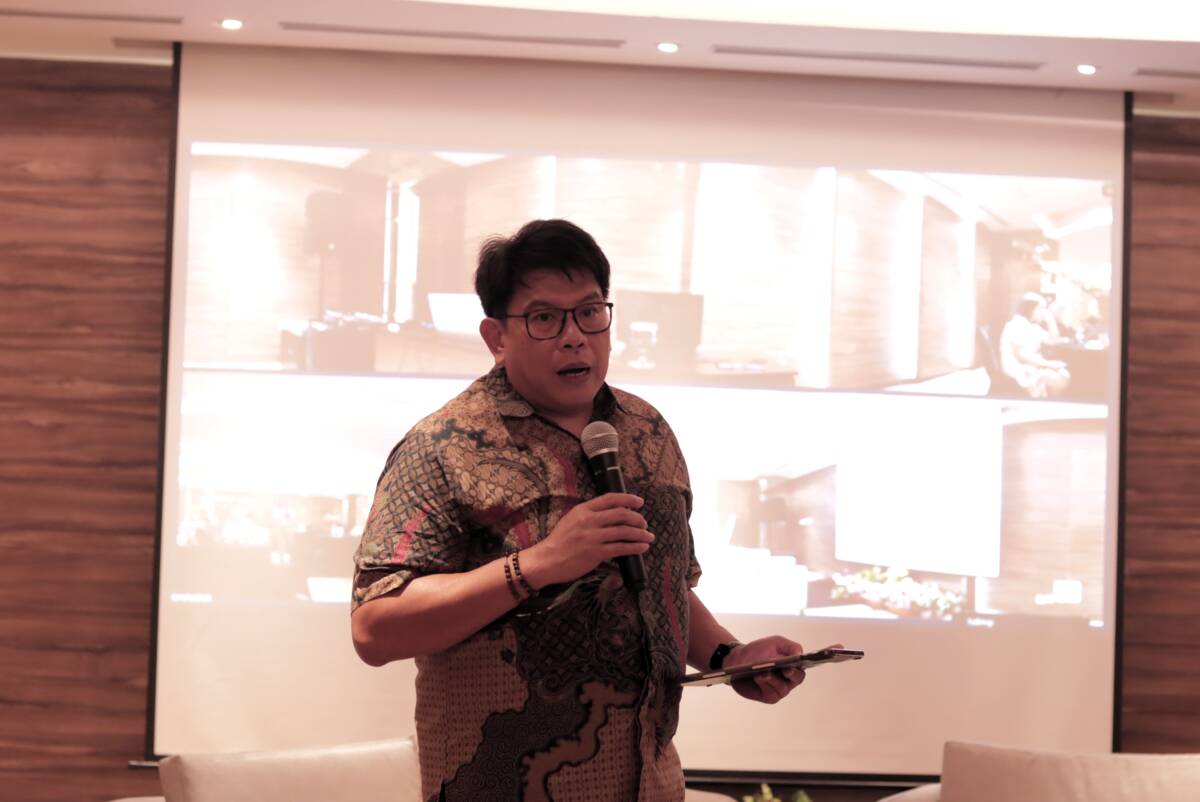Jakarta, August 29, 2025 – The increasingly real climate crisis demands immediate action to reduce the negative impacts of greenhouse gas emissions. One gas that has a significant but often overlooked impact is methane. Although methane’s concentration in the atmosphere is not as high as carbon dioxide (CO₂), its warming intensity is much higher. This gas can cause rapid global warming, reaching 80 times the warming effect of CO₂ despite its smaller volume and shorter residence time in the atmosphere. Therefore, reducing methane emissions is a crucial step in global efforts to address climate change. This was stated by Fabby Tumiwa, Chief Executive Officer (CEO) of the Institute for Essential Services Reform (IESR), at the Workshop on Strategic Opportunities for Methane Emission Reduction in Support of the Second Nationally Determined Contribution (NDC) and Net Zero Emissions Targets on Friday (August 29).
“Methane gas primarily originates from the agricultural, waste, and energy sectors. The agricultural sector, for example, is a major contributor of methane through activities such as livestock farming and agricultural waste management. In the energy sector, methane is contained in natural gas and is often released throughout the production chain, from drilling and transportation to gas distribution. The concentration of methane gas in the atmosphere significantly impacts efforts to reduce overall greenhouse gas emissions. Therefore, controlling methane emissions is a crucial step in combating global warming,” Fabby emphasized.
Tazkia Harijanto, Climate Policy Program Staff at IESR, stated that methane emission values in Indonesia vary across data sources. The inconsistent methane emission values reported by various data sources indicate the need for a nationally standardized inventory and reporting methodology to identify baseline emission values, determine methane emission reduction targets, and implement strategies. To reduce methane emissions, there are significant opportunities in the energy sector. Emission reductions in this sector can be achieved by detecting and repairing leaks and recovering waste gas for reuse. Furthermore, improved emission controls can also help mitigate the impact of this sector.
“By identifying the sources of fugitive emissions, the energy sector can reduce methane emissions while mitigating economic losses. In the agricultural sector, methane emissions can be utilized as an alternative energy source. Indonesia’s commitment to the Global Methane Pledge opens up opportunities for international climate funding and access to the latest technology, which can accelerate the energy transition and support innovation in the agriculture and waste sectors,” said Tazkia.
Haruki Agustina, Director of Climate Change Mitigation at the Ministry of Environment, explained that to reduce methane emissions, Indonesia is implementing various mitigation strategies, particularly in the coal mining and oil and gas sectors. In the oil and gas sector, mitigation strategies include limiting routine flaring, in accordance with ESDM Regulation No. 17/2021, and limiting and reporting the volume of gas flares. Optimizing the use of natural gas for household needs, such as for gas networks and converting kerosene to LPG, is also being carried out in the transportation sector, as fuel for public transportation.
“On the other hand, in the oil and gas sector, there are mitigation strategies to reduce emissions through the construction of solar power plants (PLTS) and the operation of electric vehicles, carbon offsets, verified by wind power plants (PLTB), hydropower plants (PLTA), microhydropower plants (PLTMH), and biogas. The Global Methane Initiative (GMI) is a strategy to reduce dependence on fossil fuels,” said Haruki.
Meanwhile, Hismiaty Bahua, a researcher in Green Engineering-Based Ecological Industrial Technology at the National Research and Innovation Agency (BRIN), explained that effective methane mitigation can be achieved by utilizing agricultural and industrial waste. For example, liquid waste from the palm oil industry (POME) and other agricultural waste can be processed into biogas, which can be used to generate electricity, and biomethane (BioCNG) for vehicle fuel. Other sources include food waste and animal waste, which can also be processed to produce biogas and organic fertilizer.
“Methane mitigation plays a crucial role in achieving the Net Zero Emissions (NZE) target by 2060 or sooner. Without reducing methane emissions, the global temperature increase target of 1.5°C is difficult to achieve. Reducing methane emissions can contribute to a global temperature reduction of up to 0.1°C by 2050, which is crucial to preventing more severe climate change impacts. Reducing fossil fuel consumption also plays a role in reducing methane emissions. Therefore, even though fossil fuel consumption has decreased, reducing methane emissions still requires greater efforts,” said Hismiaty.

